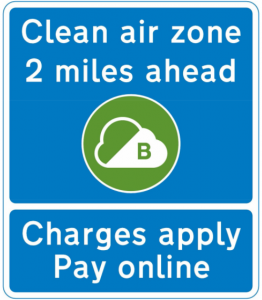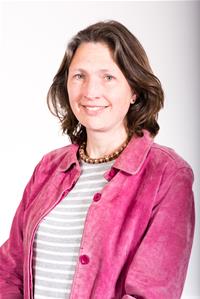Bath’s trailblazing Clean Air Zone is already helping rid the city’s streets of polluting vehicles just 100 days after it was introduced, according to Bath & North East Somerset Council.
The scheme, launched on March 15 as the first charging clean air zone (CAZ) outside London, aims to urgently tackle harmful levels of air pollution caused mostly by polluting taxis, vans, buses and larger commercial vehicles.

While the council says it is too early to demonstrate any improvement in air quality, it can see from vehicle movement figures in the zone that the worst-offending vehicles are being replaced by cleaner, greener ones.
Under the scheme private cars and motorbikes are exempt but charges of £100 a day apply to higher emission buses, coaches, HGVs and motorhomes, and £9 a day for higher emission minibuses, taxis, private hire vehicles, LGVs and vans, including private pick-ups and campers.
Charges apply 24 hours a day, seven days a week.
The council is making grants and interest-free finance available to owners of vehicles falling foul of the charging system to encourage their swift replacement with cleaner, compliant ones.
And is on course to replace 1,500 non-compliant vehicles driving regularly in the zone by the end of the year. The council is now requesting more funds from the government to extend the scheme.
According to the council, 30,000 to 40,000 unique vehicles enter Bath’s CAZ each day, numbers that have increased week on week since lockdown restrictions have eased.
But while the total number of vehicles entering the zone has risen, the proportion of chargeable vehicles has fallen from around 5% to between 3% to 4%.
Council deputy leader and cabinet member for climate and sustainable travel, Sarah Warren, pictured, said: “The fall in the number of non-compliant vehicles seen in the zone reflects the success of the council’s financial assistance scheme, and a big effort among businesses nationally to respond to the introduction of Bath’s, Birmingham’s and soon Bristol and Portsmouth’s Clean Air Zones by upgrading vehicles and reorganizing fleets.
“While we won’t know the impact on air quality until the first three months’ of data is released to the public in the autumn, the fact that compliance is improving means we’re moving in the right direction.

“Already 240 of the city’s most polluting vehicles have already been replaced with cleaner, compliant vehicles through the scheme.
“This includes around 55 polluting taxis and private hire vehicles that drive in the city centre every day. Hundreds more businesses have recently been approved for finance after completing a 60-day assessment of their vehicles – so it won’t be long until more than 1,000 of the most polluting vehicles regularly driving on our roads are replaced with cleaner ones. This will make a real difference to the air we breathe.
“We’ve also been supporting these businesses with exemptions from charges while they’re assessed or waiting for new vehicles to be delivered.
“This has encouraged businesses sitting on the fence over whether or not to replace their vehicle to apply for finance and has provided additional support for businesses as they recover from the pandemic restrictions.”
Alongside this, the council has helped to upgrade more than 80 buses on the city’s scheduled bus routes, which means that all of the 220 buses on scheduled routes will be compliant with the new emission standards by the end of the summer.
The council is also working closely with the area’s first responders and emergency teams, who are keen to show leadership. Emergency and health service vehicles are exempt from charges in the zone for up to five years to help protect vital services, however Avon and Somerset Police, Avon Fire and Rescue Service and South Western Ambulance Service Foundation have all been working closely with the council, updating and reorganizing fleets so that – as far as possible – vehicles are compliant in the zone.
Bath & North East Somerset Council director of public health Becky Reynolds added: “The council is doing its very best to tackle the high levels of air pollution in the city without delay.
“Air pollution, caused by vehicle emissions, can trigger asthma attacks, and make heart and lung conditions worse. It can also stunt children’s lung development.
“Such high levels of pollution in Bath, which exceed the UK legal limits, are not acceptable. We’re doing what we can to tackle this in the shortest possible time, which is the directive from the government. We know that a charging CAZ is the only way we can achieve this.
“It’s therefore very promising to see this indication of success. Charges don’t work on their own to clean the air, they work alongside the financial incentives given to local businesses to invest in cleaner vehicles, and also by raising awareness of what we can all do to help – which includes leaving our cars at home when we can and walking and cycling our shorter journeys instead.”
The council operated a soft launch for two months until May 18 during which penalty charge notices (PCNs) were issued. People who did not self-declare and pay the zone charge within seven days of their journey were given a further seven days to pay the outstanding charge before a fine of £120/£60 was issued.
Full enforcement of the zone then started, meaning anyone failing to self-declare and pay for their journey within seven days is now issued a fine of £120 (or £60 if paid within 14 days), plus the outstanding charge.
Total income from zone entry charges since launch is £590,376 – around £50,000 per week. Revenue needs to first cover the costs of the zone with any over and above this being reinvested into sustainable transport projects.


















